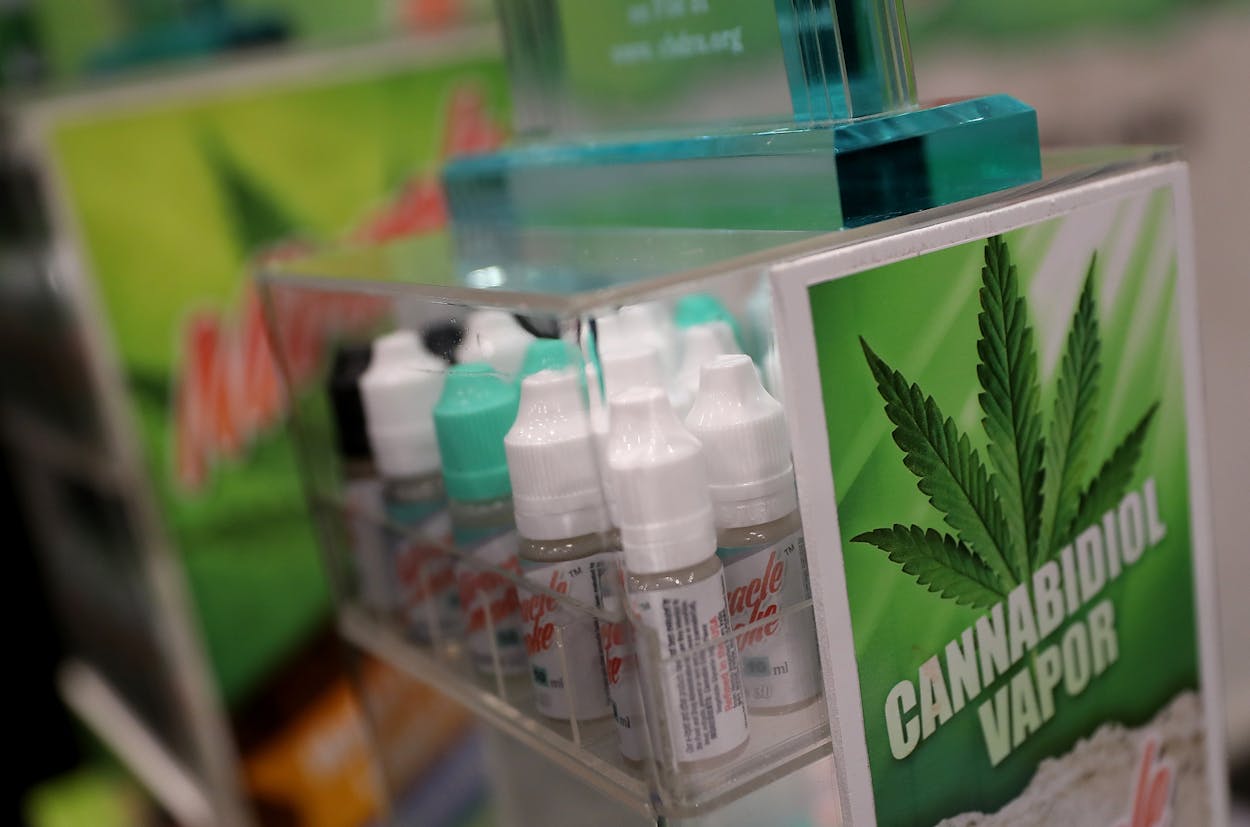In 2015, the Texas Legislature carved out an extremely narrow exception to the state’s marijuana laws: the Lege would allow CBD oil—a marijuana-derived drug with an almost non-existent level of THC, the psychoactive chemical in cannabis—to be prescribed and sold to patients suffering from intractable epilepsy. The change in the law was meant to serve a small subset of Texans suffering from a brutal medical condition.
I reported on this topic earlier this year in a profile of a few North Texas families whose children suffer from Lennox-Gastaut Syndrome, a form of intractable epilepsy, who were taking part of a research study to understand the effects of using CBD oil to treat the condition. During my reporting, I witnessed the havoc wreaked by a disease that causes as many as a hundred seizures a day for some children. If these seizures start early in a person’s life, as it did in the kids I met last winter, the developmental damage they cause effectively ends any hope of a normal life from a very young age. What you’re left with are parents who are helpless to do much more than provide for kids they love, but whose suffering they lack the tools to ease.
That’s part of why the conservative Texas Legislature passed the bill sponsored by Senator Ken Eltife (R-Tyler). CBD oil, as ongoing research has indicated, is one of the more promising treatments for the symptoms of LGS and other intractable epilepsies. (Jordyn, one of the children with LGS in the profile, has gone from being wheelchair-bound to walking under her own power; Jaxon, who would experience as many as 40 seizure “clusters” a day, is down to six or seven.) The results have been impressive—but last week, the Department of Public Safety announced the regulations they plan to impose on the dispensaries selling CBD oil under Texas law. As the Texas Standard reports, they are, to put it plainly, onerous:
DPS wants to raise the fee from $6,000 to $1.3 million in the first year of sales and $975,000 every year after. The department says fees would go to cover troopers to be placed at each facility that sells the oil and start a registry of businesses.
There are roughly 150,000 Texans with intractable epilepsy. That’s a fairly small market of potential customers for any dispensary that wants to get licensed. At $6,000 a year, pharmacies in large population centers could probably justify the cost of getting licensed even if the margins were slim. But if that cost goes up 216 times its proposed fee, it starts to seem facilities might not want to incur such a significant financial burden for a relatively small customer base. This would, in turn, make it that much harder for those who suffer from this condition to get potentially life-changing medicine.
That’s unfortunate, obviously, for the people who suffer from intractable epilepsy, as well as for the people who care for them. “Marijuana-derived medicine” isn’t the same thing as medical marijuana (indeed, marijuana advocates were frustrated that Texas’ law doesn’t allow for, say, cancer patients to use other forms of the drug to manage symptoms), and CBD oil bears little resemblance to what the DPS might be thinking about when it insists that these facilities are going to require state troopers to be posted outside all day and night to protect the merchandise. The CBD oil the North Texas patients I met were taking came in a small vial in liquid form, and you could swim in a pool of the stuff without so much as the desire to listen to Bob Marley or kick around a hackeysack. For people with intractable epilepsy, CBD oil isn’t a miracle drug—those don’t really exist for this condition—but it’s a life-changer for many of them. But it’s also of no danger to the people of Texas, which the Legislature recognized in 2015 when it allowed for the drug to be sold in the first place.








